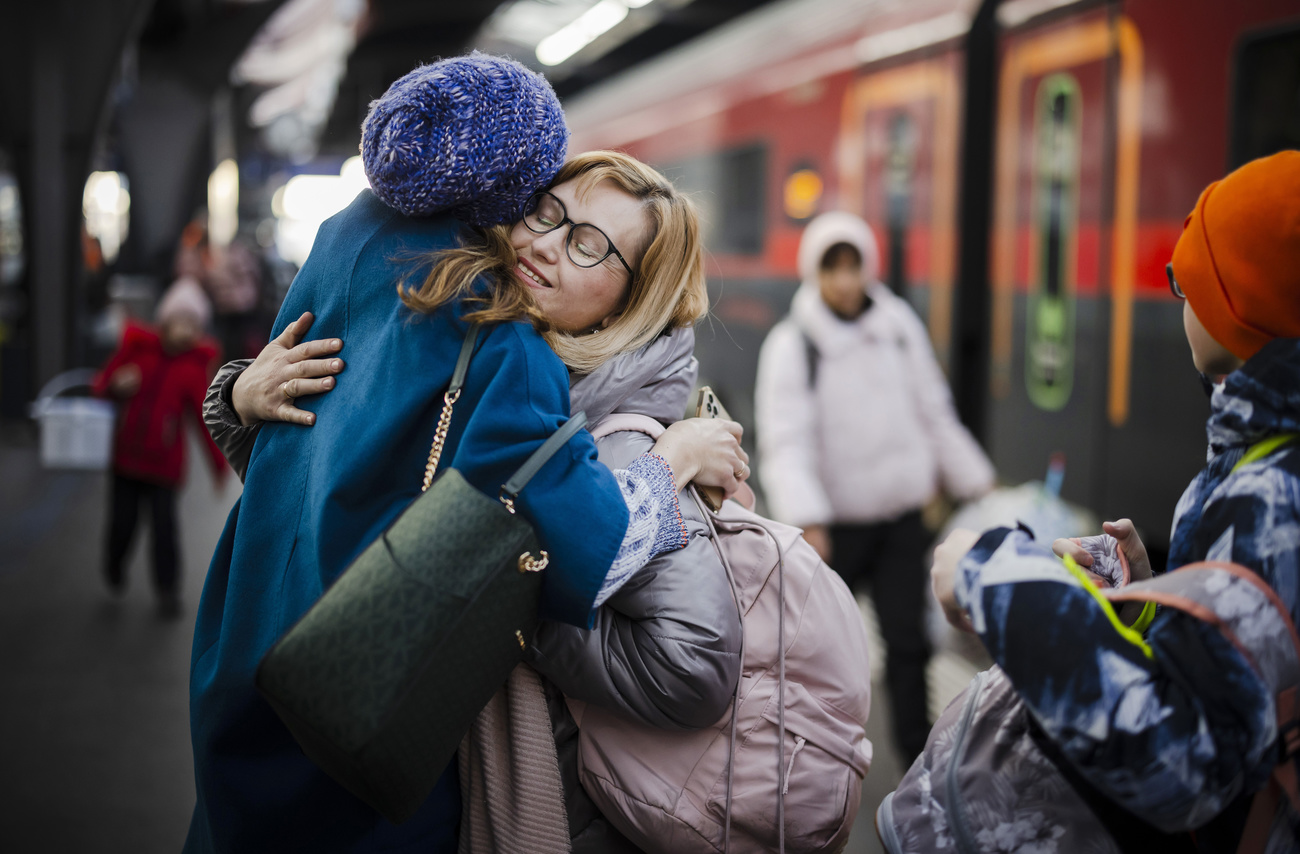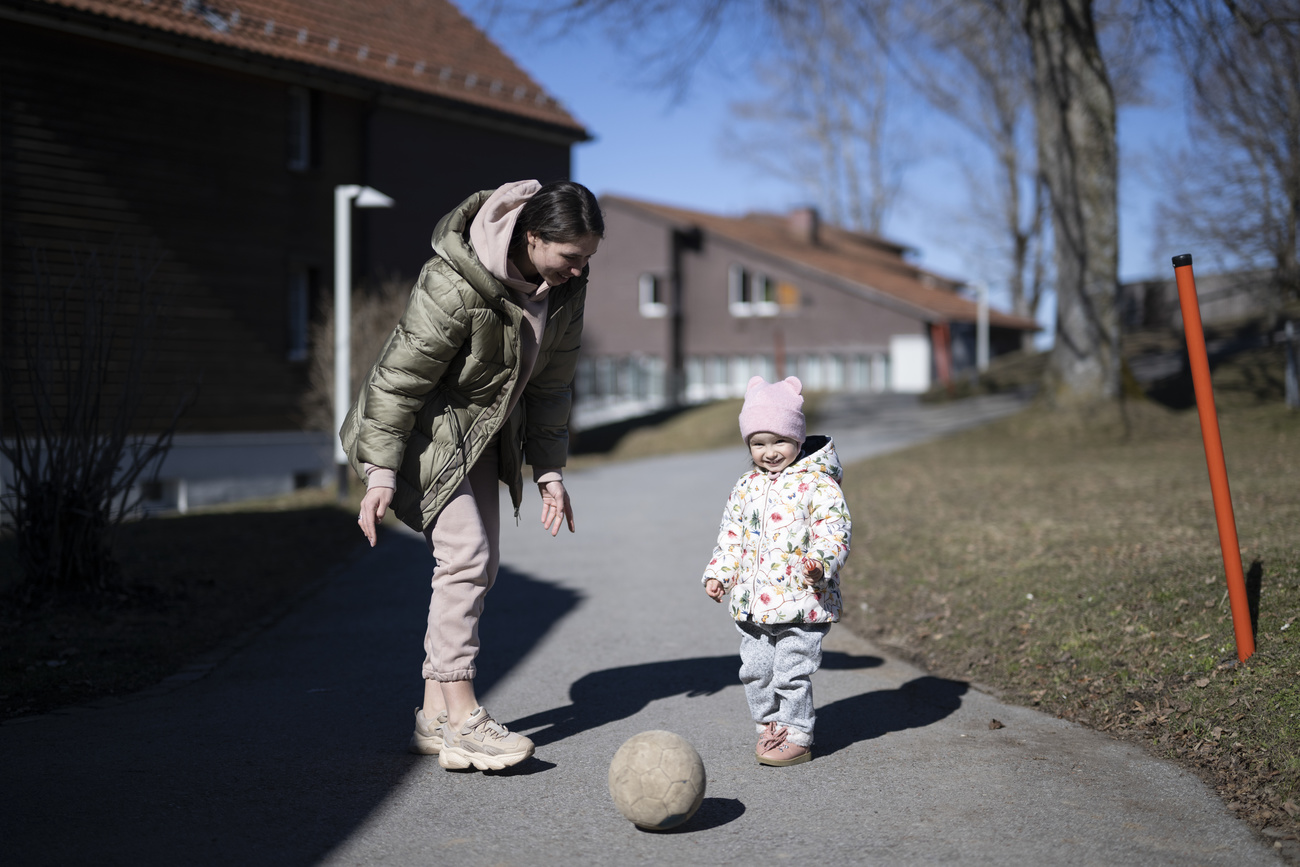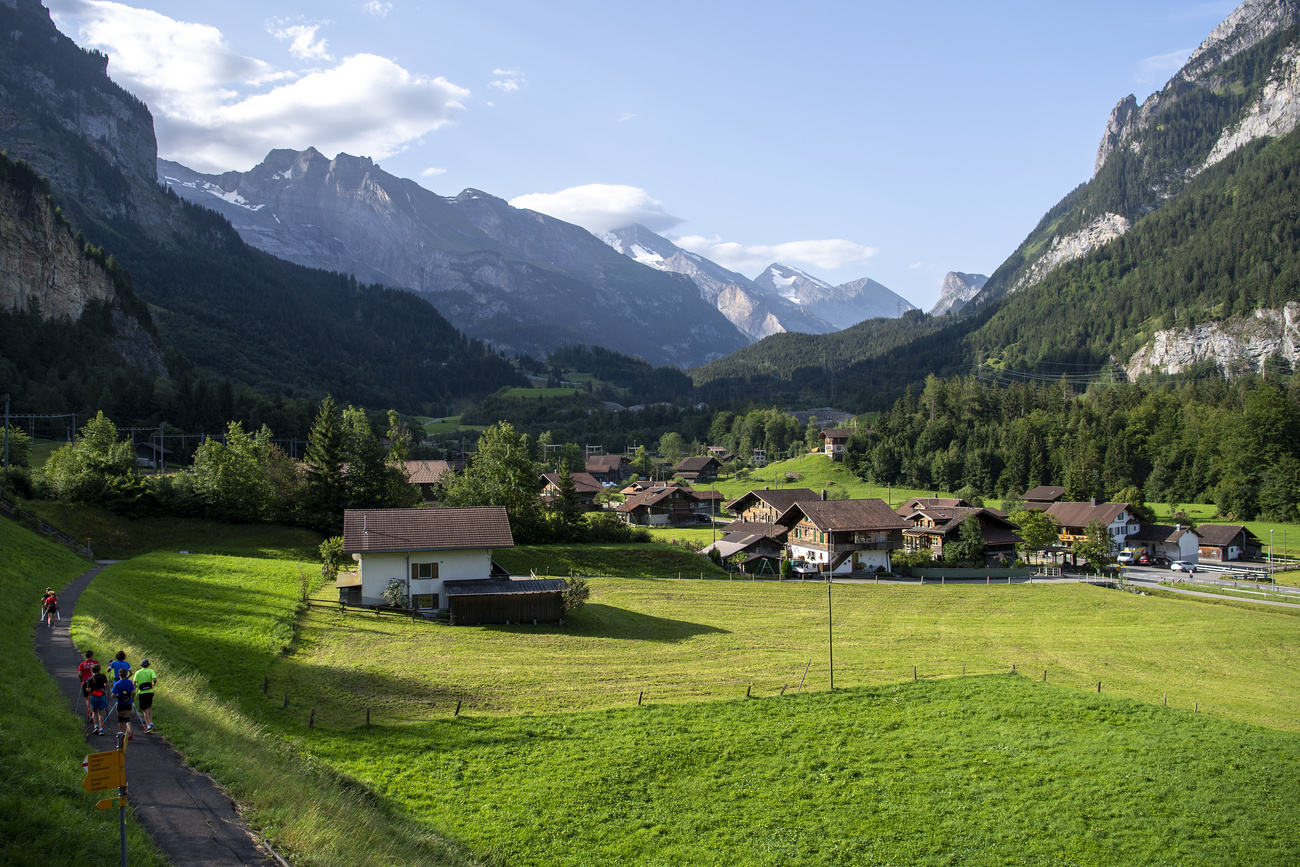

Switzerland Today
Greetings from Lausanne!
Here are the latest news and stories from Switzerland on Thursday.

In the news: Swiss donations for Ukraine, Mariupol hospital bombing and a debate on Switzerland’s bid for a UN Security Council seat.
- Swiss Solidarity has raised over CHF82.6 million ($89.1 million) as part of a public fundraising effort for victims of the war in Ukraine.
- Switzerland has condemned the bombing of a children’s hospital in the Ukrainian city of Mariupol (photo above), calling it an “inconceivable act of inhumanity“. Ukraine accused Russia of carrying out genocide, while the Kremlin said the bombing claim was fake “information terrorism”.
- Opponents of Switzerland’s bid for a non-permanent seat on the United Nations Security Council have suffered a setback in parliament. The House of Representatives clearly rejected a call by the right-wing Swiss People’s Party for the government to withdraw its candidacy for a seat on the council for the years 2023/24.
- Swiss Post more than doubled profits to CHF457 million ($493 million) as it was less affected by pandemic restrictions.
- The Swiss bank Credit Suisse reported todayExternal link that it had gross exposure to Russia of CHF1.6 billion ($1.73 billion) at the end of 2021. On Monday UBS said its direct country risk exposure to Russia accounted for $634 million of its total emerging market exposure of $20.9 billion at end-2021.

More
Newsletters

Swiss schools prepare for Ukrainian children
As Switzerland prepares to host refugees, many schools across the country could soon be taking in children fleeing war-torn Ukraine. The aim is to offer a safe environment.
Swiss public television SRF has a reportExternal link on three refugee children who started in a school in Eschlikon, canton Thurgau, on Monday, after the family was able to find shelter with relatives in the community.
“It was about welcoming the family, doing an intake interview, preparing everything within the class and also preparing the class itself,” head teacher Thomas Minder explained. Special German classes have been organised for the children as well.
Many pupils have reacted with a lot of compassion for the situation in Ukraine, collecting donations and wanting to help, Minder said. “I think children from Ukraine who go to our school with will be very well received in our classes.”
Swiss schools have some recent experience of receiving refugee children from Syria.
Currently there are 1,314 refugees from Ukraine in Switzerland; of these, 315 people are staying privately with relatives and acquaintances, and the rest are being accommodated in federal asylum centres and are being cared for there.

Swiss universities to review Russian research cooperation
The war in Ukraine is having a huge impact on many different Swiss-based institutions and firms, forcing them to review their relations with Russia.
In the latest development, swissuniversities, the sector’s umbrella body, announced today that Swiss universities should re-examine their scientific collaborations with universities in Russia and suspend them if necessary.
“When political agreements and rules of diplomacy are unilaterally overridden, many areas in science remain connected through a common understanding of scientific freedom and academic integrity. This scientific cooperation must not serve to support the aggressive policy of the Russian government, which with this war of aggression violates fundamental principles of human rights, international law and basic European values,” said swissuniversities in a statementExternal link.
“In this sense, the board of swissuniversities recommends that Swiss universities review their scientific collaborations with universities in Russia and suspend them where such a danger exists.”
swissuniversities nonetheless adds that it wants to protectUkrainian and Russian researchers and students at Switzerland’s ten universities and two federal institutes of technology.
In a separate development on Wednesday, the Geneva-based European Organization for Nuclear Research (CERN) released a statementExternal link condemning Russia’s invasion of Ukraine. It said it would henceforth promote initiatives to support Ukrainian collaborators and Ukrainian scientific activity (Ukraine is an associate member of CERN) in the field of high-energy physics. The observer status of the Russian Federation would be suspended and CERN would not engage in new collaborations with Russia and its institutions until further notice.
And the World Economic Forum (WEF), which also has its headquarters in Geneva and is best known as the host of an annual meeting of elites in Davos, Switzerland, says it’s freezing all its relations with Russian entities following the invasion of Ukraine.

The ticking time bomb at Mitholz – should I stay or should I go?
In 1947, an underground ammunitions depot exploded in the picturesque village of Mitholz (photo above) in the Bernese Alps. For years, locals were confident that the remaining munitions and explosives buried at the site – up to 3,500 tonnes – were not a danger.
But in 2020 the defence ministry announced that the people of Mitholz would have to leave their village for ten years so that the explosive material could be safely removed.
According to Swiss public radio, SRFExternal link, 87 residents can now stay in the mountain village if they want to, while 51 must leave because they live too close to the munitions dump located inside a collapsed mountain.
However, for anyone wanting to stay, the quality of life is likely to be badly affected for years: noise, dust and vibrations are to be expected, the defence ministry warned on Wednesday. Property purchases and relocations are due to be completed by 2030; the authorities say the inhabitants forced to leave will be evacuated from Mitholz for ten years.

In compliance with the JTI standards
More: SWI swissinfo.ch certified by the Journalism Trust Initiative



























